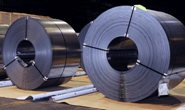Government/Policy

July 2, 2019
Commerce Issues Duties on Vietnam Cold-Rolled and CORE Steel
Written by Sandy Williams
The U.S. Department of Commerce announced duties of up to 456 percent in three preliminary circumvention rulings today involving exports of steel products from Vietnam. The circumvention rulings cover certain steel products that are first produced in Korea and Taiwan, then shipped to Vietnam for minor processing, and finally exported to the United States as corrosion-resistant steel products (CORE) and cold-rolled steel (CRS).
Commerce will instruct Customs and Border Protection to begin collecting cash deposits on imports of corrosion-resistant steel products and cold-rolled steel produced in Vietnam using Korean- or Taiwanese-origin substrate. These duties will be imposed on future imports and also on any unliquidated entries since Aug. 2, 2018 (the date on which Commerce initiated these circumvention inquiries). The applicable cash deposit rates will be as high as 456.23 percent, depending on the origin of the substrate and the type of steel product exported to the United States.
According to Commerce, shipments of CORE from Vietnam increased by 331.9 percent to $950 million in the 40-month period ending April 2019. CRS shipments increased by 916.4 percent to $498 million in the 38-month period ending April 2019.
Petitioners in the circumvention investigation were U.S. domestic producers of CORE and CRS: Steel Dynamics, California Steel Industries, AK Steel Corp., ArcelorMittal USA, Nucor Corp., and U.S. Steel Corp.
To date, the Trump administration has issued 31 preliminary and/or final anti-circumvention determinations.







